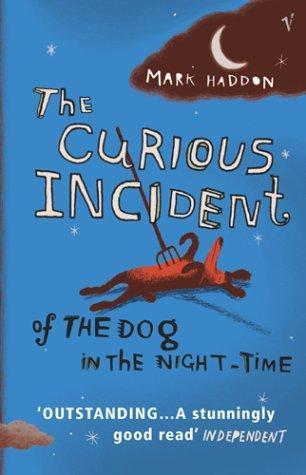This really should have been a DNF for me...
2 stars
This is not a mystery book like I was lead to believe. The murderer of the dog confesses it about halfway through the book. I really enjoyed seeing everything through Christoper's eyes and how the world relates to him. However, after the reveal, it turns into a family drama. It completely lost me at that point. Due to the way it is written, I was not able to connect to the situations or issues and it just fell flat at that point.
I gave it 2 stars because I did genuinely enjoy the first half of the book.






